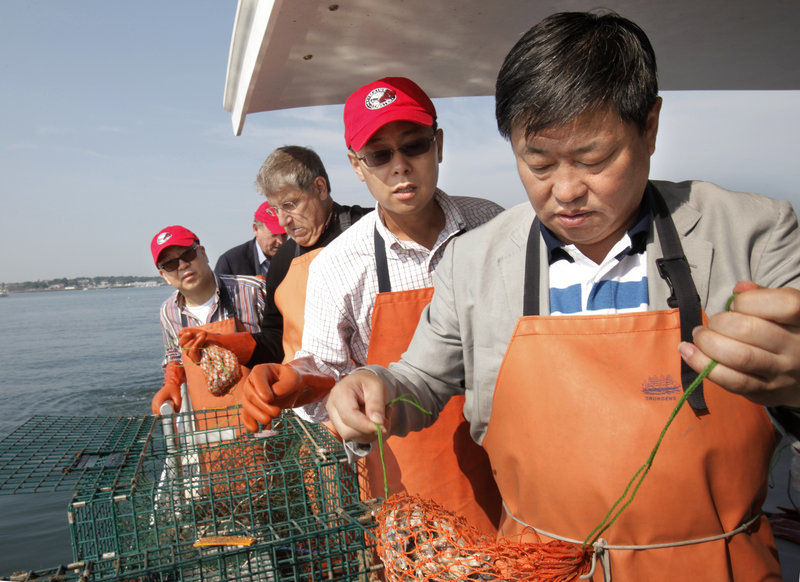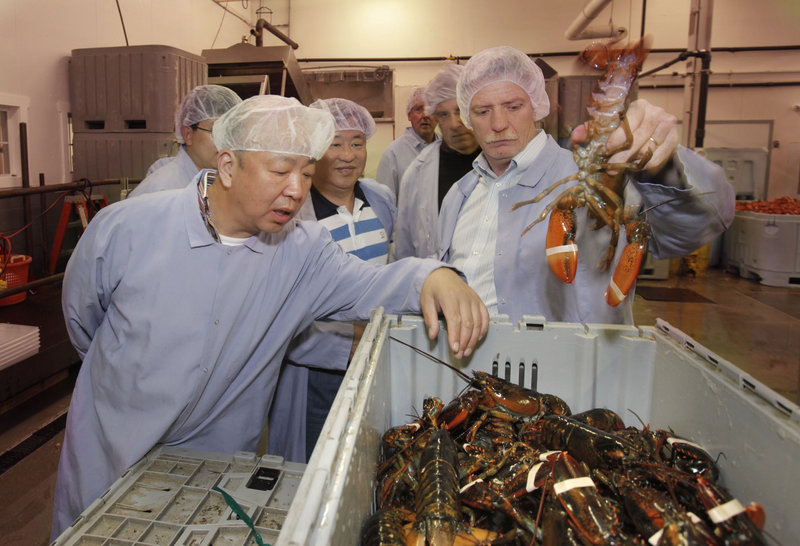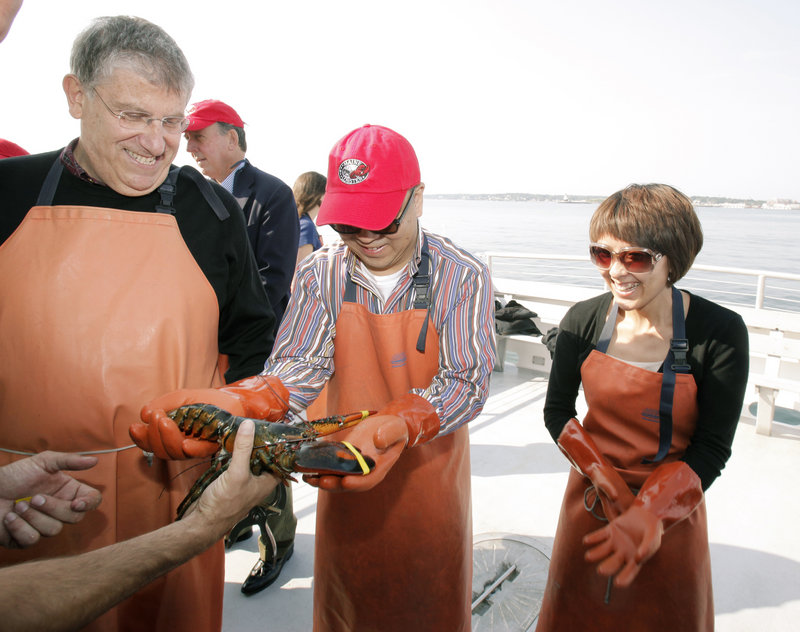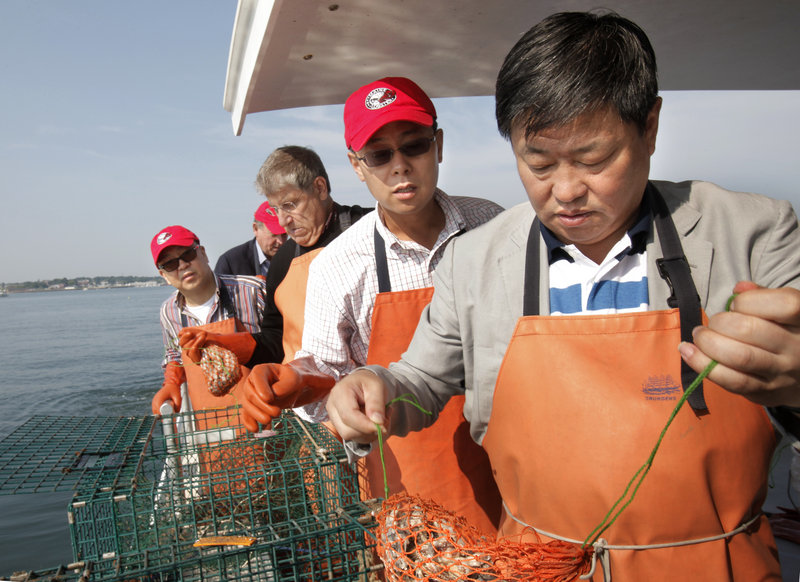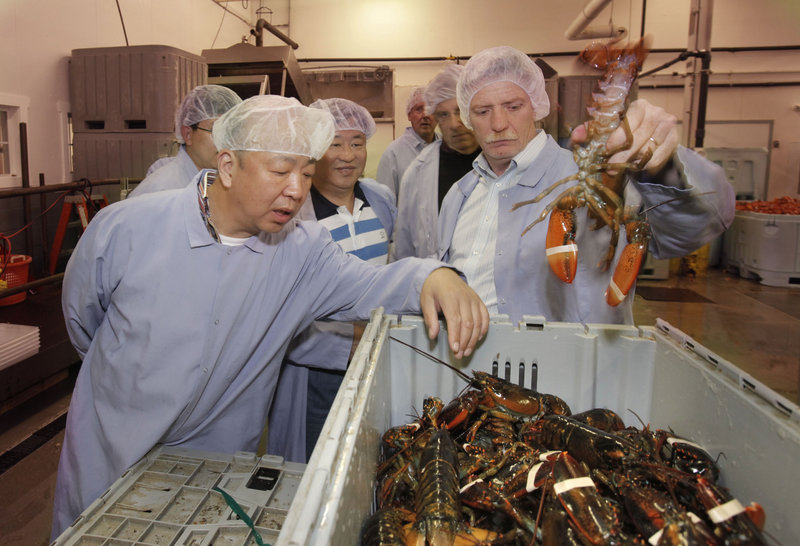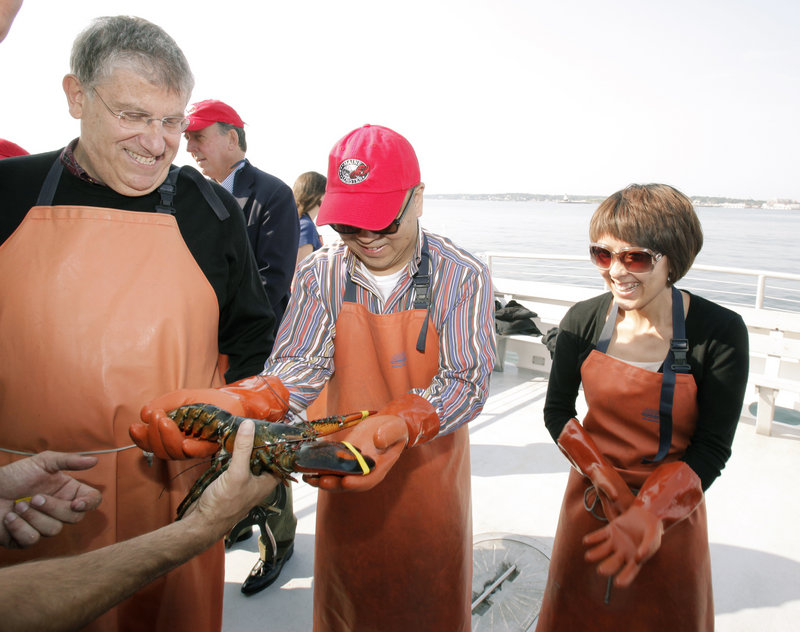PORTLAND – With the lobster boat stopped near Fort Gorges, the delegation donned long rubber aprons and gloves, and got a warning from Tom Martin to keep their hands away from the winch.
The Chinese business leaders gathered around as Martin, the owner of Lucky Catch Cruises, hauled up the traps. He explained the mechanism of the traps and that females with eggs must be thrown back, and showed the delegation how to measure a lobster.
The one he held met the size standard — at least 3¼ inches from the back of the eyes to the edge of the main body — and could go into the tank.
“Big enough!” Martin said, to cheers from the group.
Friday’s outing was part of a crash course on Maine’s lobster industry for representatives of COFCO — a conglomerate that includes China’s largest food importer — and Hopu Investment Management.
The group was in Maine at the invitation of Eliot Cutler of Cape Elizabeth, an independent candidate for governor.
“I want them to understand Maine lobster is better than Australia and New Zealand lobster, that we produce enough to export to China, and that it is a sustainable fishery — which is very important to China — and that they and we can make a lot of money with trade going that way,” Cutler said.
The delegation included Ning Gaoning, chairman of COFCO; Paul Liu, president of Ceroilfood, a subsidiary of COFCO; and Fang Fenglei, Hopu’s chairman.
Cutler lived in China for 2½ years, moving there to open an office for his law firm. He got to know Fang then, and in recent months he met Ning through Fang.
Friday’s schedule included a visit to Portland Shellfish Co., where the visitors tasted products and saw workers butcher live lobsters, pack tails for flash-freezing and pick cooked meat by hand. They then had a lobster roll lunch at the Gulf of Maine Research Institute with representatives of the industry.
The day’s activities combined business and fun, said Liu, who is based in New York. He said that while there certainly is a market for lobster in China, more study is needed — on issues including marketing, the catch and processing — before the businesses decide whether to pursue opportunities in Maine.
“We’ll do our homework, keep contact with people here and see what happens from there,” he said.
The group learned that Maine’s lobster catch is 75 million pounds a year, and that an estimated 35 million pounds could be available for export to China. That amount, which could be worth about $200 million a year, would be enough to consider pursuing, said Guy Cui, one of the partners in Hopu.
“Two hundred million dollars is something worth exporting. Twenty million is too small,” he said.
Ning, who goes by “Frank,” said he would first want to build the Maine brand in China, where lobster is now associated with Australia or Boston. He would work with frozen products before considering importing live lobster, which poses more logistical challenges.
Dane Somers, executive director of the Maine Lobster Promotion Council, said working with COFCO would be an enormous opportunity. He said it would broaden the market and help firm up prices for exports.
“That’s a nice way of saying ‘Whoever pays the most gets the lobster,’ ” he said.
In November’s election, Cutler will face Democrat Libby Mitchell, Republican Paul LePage and two other independents, Shawn Moody and Kevin Scott.
Arden Manning, the state Democrats’ campaign coordinator, said it wasn’t surprising that Cutler arranged to bring the delegation to Maine, given that he lived in China.
“It’s hard to say you know what Mainers are going through if you live in China and, really, have lived in Washington before that. That might be a concern for Maine voters,” he said.
Staff Writer Ann S. Kim can be contacted at 791-6383 or at:
akim@pressherald.com
Send questions/comments to the editors.

